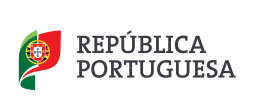EPoCH 2026 Heritage future(s) / future heritage(s): on the threshold of change
18 - 20 MAR 2025
EPoCH is an annual scientific conference, organized by the Heritage & Conservation-Restoration Focus Area of the Centre for Science and Technology of the Arts (CITAR) of Universidade Católica Portuguesa, intended as a forum for discussions on future directions in heritage and conservation-restoration research, embracing collaborative conversations driven by emerging perspectives and the exploration of a diverse array of practices, theories, and approaches.
In 2026, the conference has heritage future(s) / future heritage(s): on the threshold of change as central theme. These are the two key notions that are proposed for the EPoCH2026, in the context of conservation-restoration and heritage.
The 2026 edition of EPoCH takes as its point of departure the intertwined and open-ended concepts of heritage future(s) and future heritage(s). These notions challenge us to critically reflect on the evolving landscapes of conservation-restoration and heritage studies, and to imagine new configurations of practice, ethics, and responsibility on the threshold of change.
The formulation heritage future(s) suggests a forward-looking perspective: how do current heritage practices shape, or constrain, possible futures? This invites reflection on the values, ethical frameworks, and operative concepts that underpin conservation-restoration today. What are we preserving – and for whom? To what extent does our desire to safeguard the past risk inscribing a singular vision of the future, excluding other temporalities, epistemologies, or communities? As the climate crisis, digital technologies, and shifting sociopolitical landscapes accelerate change, how might conservation practices adapt without becoming complicit in the very dynamics of erasure they aim at resisting?
Conversely, future heritage(s) challenges us to imagine what will come to be seen as worthy of preservation. Which materials, memories, and media will future generations inherit – and how will they reinterpret or repurpose them? This opens a crucial space to problematise the canon of heritage itself, questioning the implicit hierarchies and silences that have historically defined what is deemed "preservable." And how can conservation-restoration evolve to accommodate heritages that are still in formation, fluid, or at risk of being overlooked? Future heritages may rely on heightened immaterial, ephemeral, communal, or even virtual dimensions – demanding modes of conservation that exceed traditional frameworks of material care.
The subtitle – on the threshold of change – underscores the sense of urgency, liminality, and possibility that defines this historical moment. It prompts us to consider conservation-restoration not as a reactive or merely preservative act, but as a generative practice deeply entangled with cultural, political, ecological and technological transformation. Standing on this threshold, practitioners and scholars alike are called to reimagine their roles: not only as stewards of the past, but as co-authors of evolving narratives of heritage, attuned to plural temporalities and emerging forms of life. In doing so, it encourages a collective reckoning with change, not merely as disruption, but as a condition of possibility.
EPoCH2026 welcomes contributions that critically and creatively engage with these themes across diverse contexts, methodologies, and disciplines.
Suggested topics include, but are not limited to:
- Challenging heritage: borders, margins and new epistemologies.
- Challenging conservation-restoration: new paths, tools and concepts; a deontology of the immaterial.
- Heritage in its multiple relations with climate change.
- Over-tourism in heritage sites and new approaches to tourism, including niche, sustainable, green and creative tourism.
- Sustainable solutions for heritage preservation and artistic practices. New materials, technologies and analytics. Nature-based, community knowledge and participatory strategies as basis for innovative solutions.
- Technologies for digitalization, modeling, and impact mitigation. Data Science and AI – potential uses in heritage protection and creation.
Keynote speakers
Cornelius Holtorf (School of Cultural Sciences, Linnaeus University)
Paulo Lourenço (Department of Civil Engineering, University of Minho)
Important dates
Call for abstracts: 3rd to 30th November
Communication of acceptance to authors: 16th December




